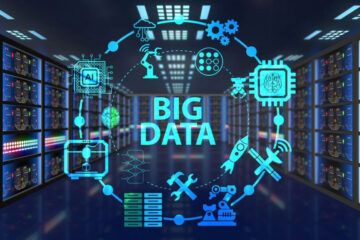Big Data is crucial in today’s world because it has the potential to transform industries, drive innovation, and improve decision-making processes. The sheer volume, variety, and velocity of data being generated in the modern world are enormous, making Big Data both a challenge and an opportunity. Here’s why Big Data is so important across various aspects of business, society, and technology:
1. Data-Driven Decision Making
Big Data enables organizations to make decisions based on real-time insights and comprehensive analytics, rather than relying on intuition or guesswork. The ability to process and analyze vast amounts of data allows businesses and governments to identify patterns, trends, and correlations that were previously hidden.
- Business Optimization: Companies can optimize everything from inventory management to customer service and marketing strategies using data-driven insights.
- Public Policy and Governance: Governments use Big Data to make more informed decisions about policies, healthcare, education, and infrastructure by analyzing data from various sources, such as social media, sensors, and public records.
2. Improved Customer Experience
In today’s competitive market, delivering a personalized customer experience is key to retaining and attracting customers. Big Data allows businesses to understand customer behavior and preferences on a much deeper level.
- Personalization: By analyzing customer data, businesses can offer tailored recommendations, targeted promotions, and personalized content, which increases customer satisfaction and loyalty.
- Customer Insights: Big Data enables companies to segment their customers based on demographics, behavior, and preferences, which helps in creating more relevant products and services.
3. Innovation and Product Development
Big Data plays a central role in product development and innovation. By analyzing large datasets, businesses can uncover unmet customer needs and areas for improvement in their offerings.
- Faster Time-to-Market: With access to real-time data, businesses can rapidly test, refine, and release products or services that are aligned with customer preferences and market demands.
- Identifying Market Trends: Big Data allows companies to spot trends before they become mainstream, giving them a first-mover advantage in the market.
4. Competitive Advantage
Organizations that leverage Big Data effectively gain a significant edge over their competitors. By analyzing massive datasets, businesses can identify opportunities, predict market shifts, and gain insights into competitor performance.
- Strategic Decision Making: Companies can use Big Data to inform long-term strategies, optimize operations, and understand customer needs, enabling them to stay ahead of their competitors.
- Market Insights: Big Data helps businesses track market trends, identify emerging threats, and make decisions that can lead to more profitable opportunities.
5. Improved Efficiency and Cost Reduction
Big Data allows businesses to optimize operations, reduce waste, and minimize inefficiencies, ultimately leading to significant cost savings.
- Operational Efficiency: By analyzing data from different departments (supply chain, inventory, production), businesses can streamline processes and reduce delays, leading to a more efficient workflow.
- Cost Reduction: Predictive analytics can help organizations forecast future demands or potential risks, allowing them to allocate resources more effectively and reduce operational costs.
6. Enhanced Risk Management
Big Data helps businesses and organizations assess and mitigate risks by providing valuable insights into potential issues before they occur. In industries such as finance, healthcare, and insurance, risk management is a top priority.
- Fraud Detection: Financial institutions and businesses can use Big Data to identify fraudulent activities by analyzing transaction patterns and customer behaviors in real time.
- Predictive Risk Analysis: By processing historical data, companies can predict future risks, such as economic downturns, supply chain disruptions, or system failures, and take steps to mitigate them in advance.
7. Improved Healthcare and Public Health
Big Data has revolutionized the healthcare industry by improving patient care, optimizing operations, and advancing medical research.
- Personalized Medicine: By analyzing genetic data and patient histories, healthcare providers can tailor treatments to individual patients, improving outcomes and reducing unnecessary treatments.
- Disease Surveillance: Big Data helps monitor the spread of diseases by analyzing trends in healthcare data, social media, and even environmental factors, enabling better response times during epidemics or pandemics.
8. Scientific Research and Development
Big Data is transforming scientific research by enabling researchers to analyze vast datasets that were previously too complex to handle.
- Accelerating Discoveries: Big Data allows scientists to process complex data in fields like genomics, astronomy, and climate science, leading to faster breakthroughs and more accurate findings.
- Collaborative Research: The abundance of available data has led to a surge in collaborative research, where different institutions, governments, and organizations share data to solve global challenges such as climate change and health crises.
9. Better Marketing Strategies
Marketing has become increasingly data-driven, and Big Data plays a significant role in shaping marketing strategies and campaigns.
- Targeted Advertising: Big Data helps businesses create highly targeted and personalized marketing campaigns. By understanding customer behavior and preferences, businesses can send tailored messages to the right audience at the right time.
- Customer Segmentation: By segmenting customers based on their behavior, demographics, and interests, companies can craft more effective advertising strategies that resonate with each group.
10. Supply Chain Optimization
Big Data has a significant impact on supply chain management, offering real-time visibility into inventory levels, shipping logistics, and customer demand.
- Demand Forecasting: Big Data helps predict demand more accurately, allowing businesses to better plan their production schedules, stock levels, and distribution strategies.
- Real-Time Tracking: With data from sensors and IoT devices, businesses can track goods in transit, monitor warehouse operations, and improve the overall efficiency of the supply chain.
11. Enhanced Security and Privacy
Big Data is essential for strengthening cybersecurity. By monitoring patterns of behavior and analyzing vast amounts of data, organizations can detect potential security breaches or vulnerabilities early.
- Anomaly Detection: Big Data helps in the identification of unusual patterns in network traffic, transactions, or user behavior, allowing organizations to detect and respond to cyber threats in real-time.
- Data Privacy: As Big Data often involves sensitive information, companies must use robust analytics and security measures to protect user privacy and ensure compliance with regulations like GDPR.
12. Faster and More Informed Decision-Making
Big Data provides decision-makers with the information they need to act quickly and accurately in a fast-paced business environment.
- Real-Time Analytics: With Big Data, businesses can monitor key metrics and performance indicators in real time, which leads to quicker decision-making and responsiveness to market changes.
- Informed Strategy: Big Data provides a detailed, data-backed view of business performance, customer needs, and market trends, helping executives make well-informed strategic decisions.
In Conclusion
Big Data is not just a buzzword but a critical component of modern business, research, and government operations. Its ability to provide real-time insights, drive innovation, optimize processes, and enhance customer experiences makes it incredibly important for staying competitive in the digital age. By leveraging the power of Big Data, organizations can unlock new opportunities, mitigate risks, and foster a more informed, efficient, and personalized world.



0 Comments